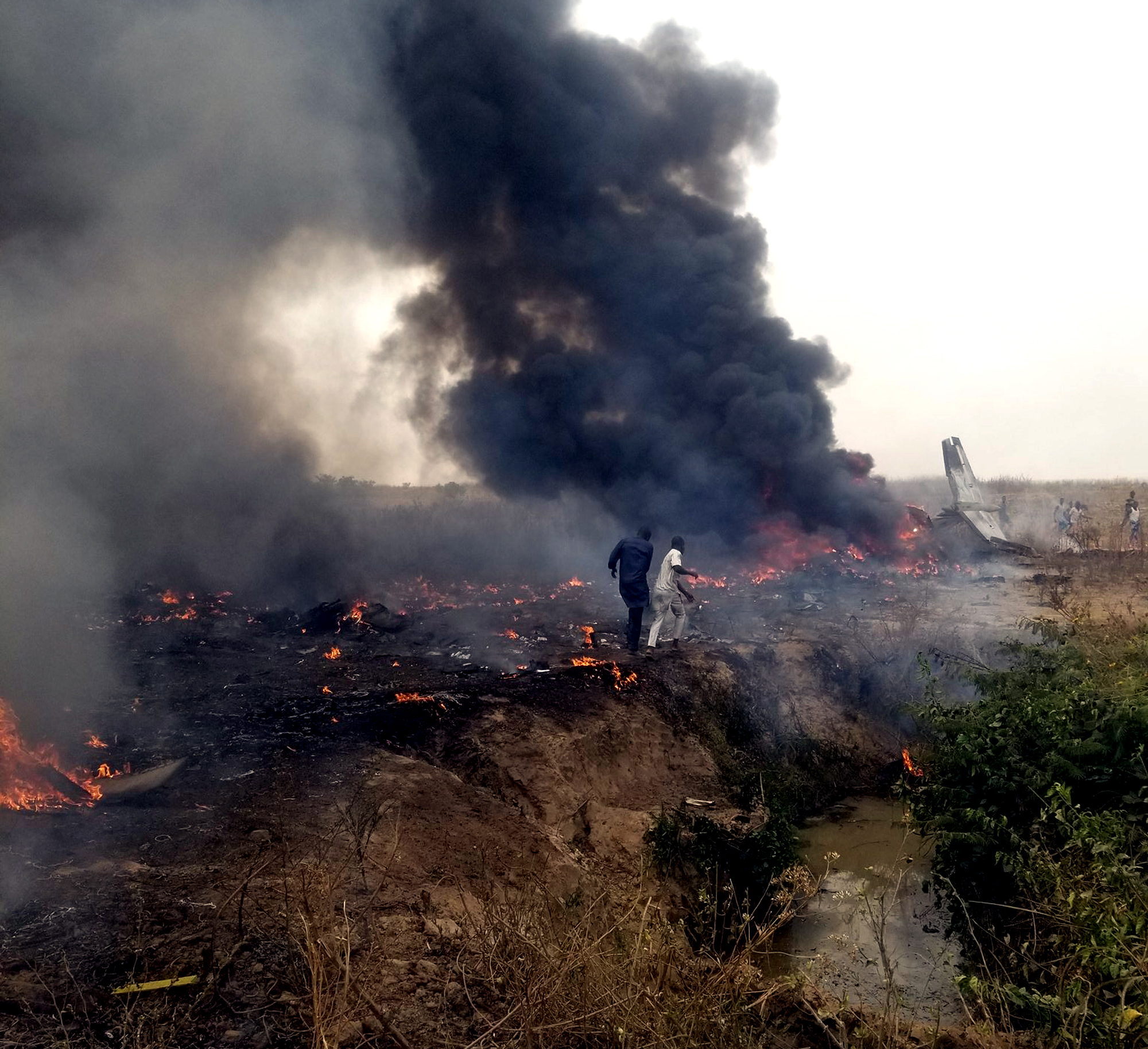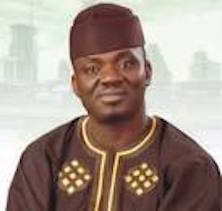NEWS
Protest Imminent as Bayelsa Relocates RDA Headquarters from Wike Ally Community

From Mike Tayese, Yenagoa
Controversy is trailing the relocation of Kolo Creek Rural Development Authority (RDA) from Kolo community to Emeyal community, both in Ogbia Local Government Area of Bayelsa state.Kolo community is the hometown of George Turnah, a former aide of Governor Douye Diri, who had fallen out with the governor and had switched political loyalty to the Minister of the Federal Capital Territory (FCT), Nysesom Wike.
Kolo Creek RDA was one of the unrecognised local government areas created by the former governor of the state, Chief Solomon Diepreye Alamieyeseigha, in 2000However, the current controversy, which had sparked protests by the people of Kolo community, was the decision by the state government to relocate the RDA local government headquarters to Emeyal II. The people had denounced the relocation citing the ongoing rift between Turnah and Senator Diri as the reason for the decision.According to the people, the decision to marginalise the people of Kolo community because of the politics of Turnah was in bad faith.They noted that discreet moves by the state government to approach the National Assembly by the state government to create a full-fledged local government named Ogbia North Local Government Area from the existing Kolo RDA and site its headquarters in Emeyal II instead of the Kolo community, which is the headquarters of Ogbia constituency III will only trigger avoidable crisis.Chief Solomon Ederi Aginaye, 1st Deputy Agholo, King of Kolo Kingdom, declared that the people, through protest, have expressed their grievances over the attempt to shortchange the people of Kolo community.According to him, the people are disturbed because the interest of the people of Kolo community was not taken into consideration by those who have made up their minds to ‘’gang up against Kolo.He lamented that since Kolo community supported the governorship ambition of Senator Douye for his first and second term, the Kolo community has not benefitted in terms of projects and appointments.Aginaye appealed to Senator Diri to resist the temptation to allow his interest to override the interest of the state.‘’The people are calling on President Bola Tinubu, Senate President, Godswill Akpabio, the House of Representatives Speaker, Tajudeen Abbas and Wike to stop the evil orchestration by the Diri administration against peace loving people of Kolo and reinstate Kolo as the headquarters of Kolo Creek RDA as a full-fledged local government area which has now been fraudulently renamed Ogbia North Local Government Area in the proposal submitted to the National Assembly’’ Diri, in a meeting with representatives of Kolo and Emeyal communities in Government House, disclosed that the meeting was called to ensure that there was law and order in Ogbia Constituency III following the disagreement about what he called the perceived relocation of the headquarters of Kolo Creek Local Government Area from Kolo community to Emeyal II.Diri, who insisted that Kolo remains the headquarters of the RDA, explained that the notice for the creation of new local government areas from the Federal Government was received late, leaving the state government with a very short time to make a decision.He emphasised that councils are yet to be created, stressing that historically, no civilian administration has been able to create local government areas.NEWS
Nigeria Condoles India over Tragic Plane Crash

The Federal Government on Thursday condoled the Indian government over the tragic crash of Air India Flight-171 in Ahmedabad.The Minister of Foreign Affairs, Amb. Yusuf Tuggar, disclosed this in a statement issued by Kimiebi Ebienfa, Spokesperson of theMinistry.Tuggar said, “Nigeria expresses profound sorrow and extends its heartfelt condolences to the government and people of India over the tragic crash of Air India Flight 171 in Ahmedabad on June 12, 2025.
“This devastating incident which claimed the lives of over 290 individuals has left the global community in mourning. “Nigeria stands in solidarity with India during this period of immense grief and unfortunate loss.“While initial reports indicate no Nigerian citizen was aboard the flight, the Nigeria High Commission in New Delhi remains in close contact with Indian authorities to verify this information and provide consular assistance where necessary.“In this moment of shared sorrow, Nigeria reaffirms its commitment to global aviation safety and supports the call for thorough investigation into the crash with a view to preventing such tragedies in the future.”The minister further commiserated with the families of the bereaved and all those affected by this tragic incident. (NAN)NEWS
Benue Speaker Advises Youth to Participate Actively in Politics

The Speaker, Benue House of Assembly, Mr Hyacinth Dajoh, has advised youths in the state to participate actively in the economic and political development of the country.Dajoh gave the advice in his Democracy Day message issued by his Press Secretary, Mr Terver Zamber, in Makurdi.
The speaker urged youths to show more interest in the economic and political development of the country. He said that they had the required education, exposure, and numerical strength to make a positive impact on both the economy and governance. Dajoh assured the youths that the assembly under his leadership would continue to enact laws to protect democracy and the rule of law.The speaker urged Nigerians to be more determined in ensuring that democracy worked in the country.He said that democracy remained the best option for the country.The speaker added that through the determination of the citizens and their active participation in the democratic process, Nigeria would be a great country.He saluted the heroic deeds of patriots who worked assiduously to actualise democratic rule in the country, especially the symbol of the June 12 struggle, the late M.K.O. Abiola.According to him, only a truly great, peaceful and prosperous Nigeria could be a befitting compensation for their sacrifices.He commended President Bola Tinubu and Gov. Hyacinth Alia of Benue for their roles in upholding democratic principles.Dajoh said that more sacrifices were required from the citizens to ensure that the country got the best of democracy. (NAN)NEWS
Cross River Communities Resume Hostility with More Casualties

From Ene Asuquo, Calabar
There is another round of hostility arising from communal skirmishes between two brotherly communities of Etono 2 and Biakpan in Biased Local Government Are of Cross River State.The resumption of hostilities happened some days ago when youths from Etono 2 were alleged to have attacked and killed a visitor to Biakpan and another youth whose identity was not immediately known.
Before then there were reports that nearly 50 persons had been killed on both sides. In the latest resurgence, a source said, “Sporadic shootings were heard on Monday and Tuesday inside Biakpan. A few persons have been killed.”State security adviser Southern district, Patrick Odion told our correspondent that he has his men on ground to calm the situation.Recall that about three weeks ago, Commissioner of Police in the state, Olusegun Omosanyin summoned the two sides to his Headquarters in Calabar and cautioned them.The police commissioner had disclosed how there was massive arms buildup by the two communities and said he would launch police action to retrieve the arms from them.He had expressed anger that the two sides had earlier refused to appear before him three times when he summoned them, adding that he had also dispatched his key officers to the two communities.Following the resumption of the hostilities, the police commissioner again met with the leadership of Biase LGA in his office.He assured that he would mobilize his men today to Biakpan and Etono 2 to quell the uprising.When DAILY ASSET spoke with some concerned stakeholders from the two communities they lamented that often when police and soldiers sent to douse tensions would leave, hostilities would resume soon after.A youth leader from Etono 2 who gave his name as Egwu Jerry, lamented, “The presence of the security men usually give us confidence but once they leave, our safety is no longer guaranteed. We’re few compared with those from Biakpan.”He also lamented that they do not have access road elsewhere than the one into Biakpan which reason, their adversaries usually encircle and easily attack and kill them.But a chief from Biakpan who gave his name as Onun Ekpezu alleged that Etono people were too aggressive and violent, and have destroyed their important properties and farms, and have killed their people and visitors.”Because of these, our youths have positioned themselves to defend our women and properties”, Ekpezu said.














